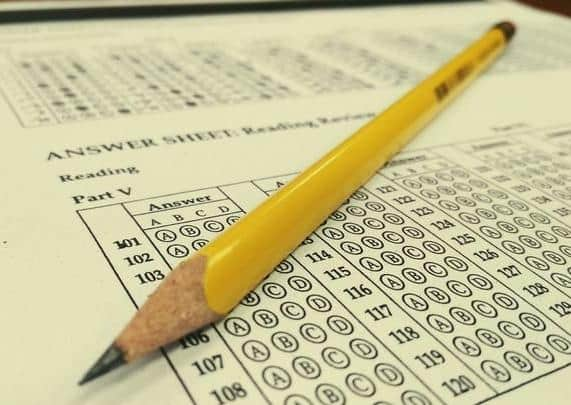Alex Kane: We parents are wondering what will happen to our transfer year children if there are no selection tests


He continued: “The consultation has demonstrated consensus on the need for a common curriculum to age 14, and on 14 as a more appropriate age for parents and pupils to consider and make choices about the curricular options or pathways which best suit the interests, needs and abilities of the young person...(the existing tests) will be consigned to history at the earliest possible date.”
In January 2004, during a period when the assembly was in a form of suspended animation, Jane Kennedy, the direct rule minister with responsibility for education, confirmed that the last 11+ transfer system would take place in November 2008, bringing an end to academic selection. But as part of the St Andrews Agreement negotiations in October 2006 a deal (with the imprimatur of the DUP and Sinn Fein) was struck which, according to the DUP, retained academic selection.
Advertisement
Hide AdAdvertisement
Hide AdIndeed, retention was one of the 20 main successes which the DUP listed as justification for the party supporting St Andrews.


But the last 11+ tests did take place in 2008, with assurances that there would be a formal, official replacement fairly quickly. Yet 12 years on and we’re still waiting.
Academic selection continues, albeit in the form of unregulated tests run by the Association of Quality Education (AQE) — used by the non-denominational grammars; and the Post Primary Transfer Consortium (PPTC) with provides tests primarily for Catholic grammars, as well as some integrated colleges and non-denominational schools.
It was a typical ‘solution’ to a problem in Northern Ireland: in this case allowing a group of schools to run what is, to all intents and purposes, a private process operating under a nod-and-a-wink arrangement with the Department of Education. And for so long as it was able to run reasonably smoothly and deliver outcomes which didn’t rattle any particular cages then it was allowed to continue.
Advertisement
Hide AdAdvertisement
Hide AdEven the fact that primary schools were having to take responsibility for assisting in the success of an unregulated scheme (which meant preparing some pupils, but not others, for the AQE or PPTC tests) was quietly ignored by the Department of Education and the assembly.
But Covid has thrown a spanner in the works. This year’s tests have already been postponed from November to January, with every likelihood that the ongoing consequences of the virus (and nobody knows what the R number will be like after Christmas) may force eventual cancellation.
What happens then?
At this point let me say that I have skin in this game. Lilah — my middle child — is due to sit the tests (and she’s very unhappy, by the way, that she will still have to be preparing over the Christmas holidays, rather than unwinding and forcing me to watch endless re-runs of the Harry Potter films).
I’m reasonably confident she’ll do well: not least because she actually enjoys exams and complains when she isn’t given homework. I have no idea, though, what happens if the tests don’t take place: and experience of the dog’s dinner that was made at the time of the GCSE and A Level results in August doesn’t fill me with any confidence.
Advertisement
Hide AdAdvertisement
Hide AdThe schools we have in mind for her allocate places based on the score she would attain in her tests.
If there is no test and no score how will the schools allocate places?
I’m presuming — although I have no hard evidence one way or the other — that the AQE, PPTC, the Department of Education and the grammar schools have wargamed all of this and have some sort of back-up plan which can be rolled out fairly quickly and without the likelihood of being hit by one legal challenge after another?
And because the academic selection transfer process is an unregulated one are there any restrictions on what information a primary school could send to the schools within that unregulated process?
Advertisement
Hide AdAdvertisement
Hide AdEven if there were an agreement (which could be more difficult to arrange than some might think) to suspend the unregulated transfer process for a year, it still leaves the problem of how you decide the criteria for allocation. For example, if there is no test would it mean that all children, even those who were not entered for the tests, would be on the same playing field in terms of applying to schools?
I’m sure almost every other parent of a child entered for the test has questions about what happens if the test doesn’t happen. And, like me, I’m sure they want reassurance that the answers to those questions are being addressed and resolved right now.
When I was speaking to someone about this issue a few days ago I was told “...don’t worry, it’ll be sorted”.
Hmmm. Anything involving the transfer of just over 16,000 pupils (that was the number who sat a test in 2019) in the absence of the test which determines their place in a school of their choice, is going to be fraught with problems.
Advertisement
Hide AdAdvertisement
Hide AdAnd bearing in mind that some pupils are entered for both tests, there would have to be agreement, too, between the AQE and PPTC; who, it is worth noting, failed to agree on a common test in 2018. Would assembly legislation be required (which raises the issue of a possible Petition of Concern)? Would the scene be set for a renewed battle between the pro and anti academic selection lobbies?
There may well already be answers to some of the questions I’ve raised (in which case I apologise for my ignorance). But I don’t want to get to a point in early 2021 when, if the tests are cancelled, I’m left flailing around and unsure of what I’m supposed to do.
Is it too much to ask that, just for a change, we are ahead of the curveball; so far ahead, in fact, that we know the answer to most of the questions before the end of December?
——— ———
A message from the Editor:
Thank you for reading this story on our website. While I have your attention, I also have an important request to make of you.
Advertisement
Hide AdAdvertisement
Hide AdWith the coronavirus lockdown having a major impact on many of our advertisers — and consequently the revenue we receive — we are more reliant than ever on you taking out a digital subscription.
Subscribe to newsletter.co.uk and enjoy unlimited access to the best Northern Ireland and UK news and information online and on our app. With a digital subscription, you can read more than 5 articles, see fewer ads, enjoy faster load times, and get access to exclusive newsletters and content. Visit https://www.newsletter.co.uk/subscriptions now to sign up.
Our journalism costs money and we rely on advertising, print and digital revenues to help to support them. By supporting us, we are able to support you in providing trusted, fact-checked content for this website.
Alistair Bushe
Editor